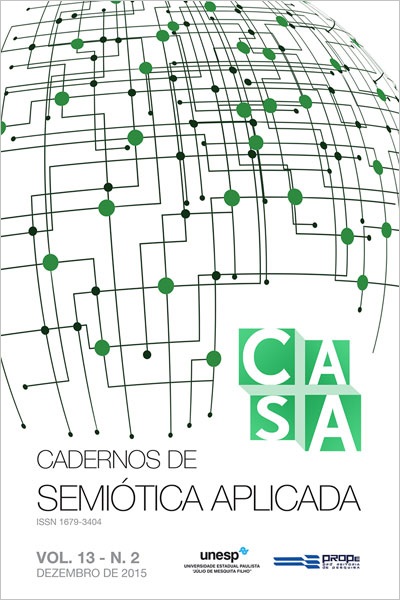FROM SEARCH ENGINES TO THE TEXT: THE LGBT IDENTITY CONSTRUCTION ON DIGITAL MAGAZINES
DOI:
https://doi.org/10.21709/casa.v13i2.8584Keywords:
Semiotics, Search engines, Corpus, Identity, LGBTAbstract
In this paper, we seek to approach, according to the discursive semiotics point of view, how the selection and the analysis of large amount of data on the move on the internet occur (the “big data”). Therefore, we discussed the functioning of the search engine indexing system on the internet, understood as previsualization or pretreatment practice that produces textual group segmentation. We assume that a text, in order to have its semiotic statement recognized, should acquire a minimum degree of “presence”, and that its constitution as research corpus, in particular on the internet environment, should surpass the pure virtuality of a textual mass, looking for its “actualization”, which in return will “realize” specific texts and will “potentiate” others. To make explicit our thinking, we present an analysis of the search engine use of both Veja.com and Carta Capital online magazines. From the quest of the term “LGBT”, term more frequently used in the transgender and homosexual’s rights debate and which better fits to understand how the media deals with the homoaffectivity social dimension and the gender diversity, we aimed to describe the construction process of this identity on both magazines.
Downloads
Published
Issue
Section
License
The authors of the approved papers agree to grant non-exclusive publication rights to CASA. Thus, authors are free to make their texts available in other media, provided that they mention that the texts were first published in CASA: Cadernos de Semiótica Aplicada. Besides, they authorize the Journal to reproduce their submission in indexers, repositories, and such. Authors are not allowed to publish the translation of the published paper to another language without the written approval of the Executive Editors. The authors are totally responsible for the content of the published work.

